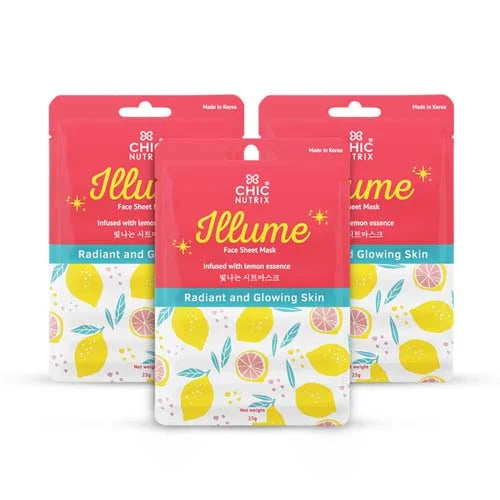-
Marine Collagen Supplement for Youthful Skin - Lemonade
8000mg Pure Japanese Marine Collagen Peptides & 2mg AstaReal® Natural Astaxanthin
Regular price ₹ 990Sale price ₹ 990 Regular priceUnit price per₹ 1,800(45%) 45%OFFSale -
Illume - Korean Collagen + Niacinamide Sheet Mask
Infused with lemon essence rich in Vitamin C with added benefits of Niacinamide, Hyaluronic acid and Collagen peptides for glowing, radiant skin
Regular price ₹ 100Sale price ₹ 100 Regular priceUnit price per₹ 125(20%) 20%OFFSale -
Illume - Korean Collagen + Niacinamide Sheet Mask
Infused with lemon essence rich in Vitamin C with added benefits of Niacinamide, Hyaluronic acid and Collagen peptides for glowing, radiant skin
Regular price ₹ 244Sale price ₹ 244 Regular priceUnit price per₹ 375(35%) 35%OFFSale -
Illume - Korean Collagen + Niacinamide Sheet Mask
Infused with lemon essence rich in Vitamin C with added benefits of Niacinamide, Hyaluronic acid and Collagen peptides for glowing, radiant skin
Regular price ₹ 388Sale price ₹ 388 Regular priceUnit price per₹ 625(38%) 38%OFFSale







